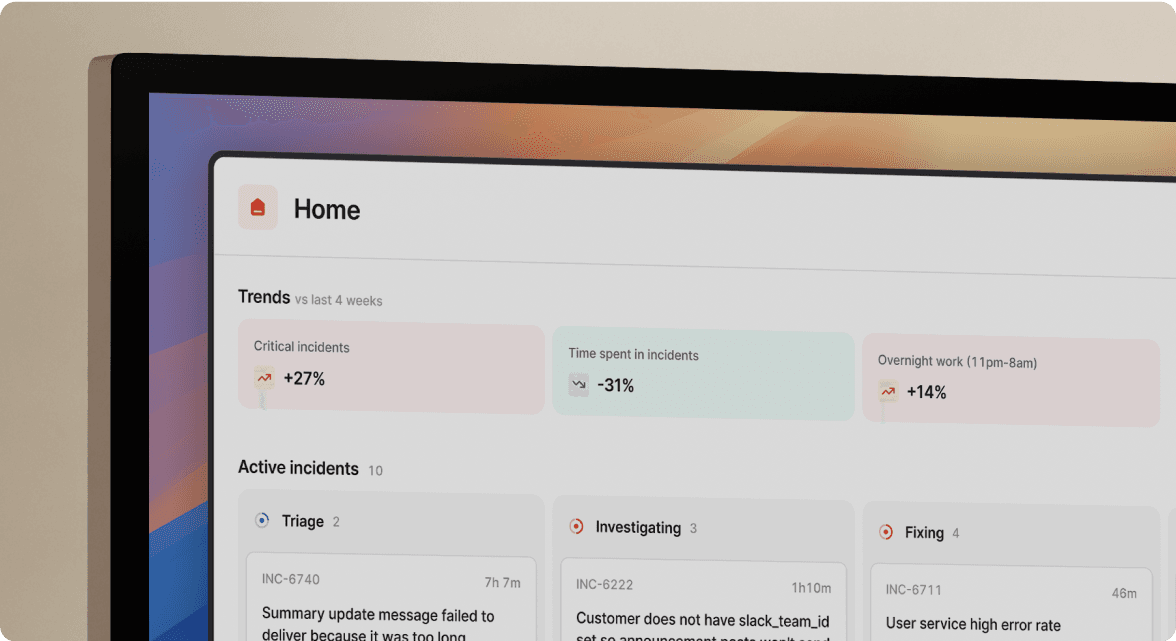Why more incidents is no bad thing

For a long time we've anchored ourselves to the notion that we should have fewer incidents, or none at all. It's hard to argue against — why wouldn't we want to fewer things to go wrong?
Incidents are a deviation from what we've defined to be the happy or expected path, and typically correlate with a negative or undesirable outcome. Surely having them happen less often makes sense?
Compare two identical organizations, differing only by the number of incidents they have. Logically, you might think the one with fewer incidents is performing better. It might be, but it's not that straightforward — the fewer incidents we have, the less information we have to hand, and the harder it is to know either way. Everything could be fine, or we could failing to report or missing problems altogether — we're flying blind.
The Deepwater Horizon oil rig incident is a perfect example. It held an impeccable record of zero safety incidents for seven years. On the eighth year, it suffered an explosion causing one of the worst oil spills in history. Post incident analysis concluded systemic failures on the rig that, if surfaced, could have prevented the critical incident. This information wasn't readily available to right people at the time which meant there was no opportunity to intervene.
If your organization has no incidents, maybe things are working perfectly, or maybe there are little fires everywhere, waiting to develop into the next organizational inferno? In that case, I'd wager you'd want to grab that fire extinguisher rather than evacuate and call out a fire crew.
At incident.io, we believe organizations should target a healthy incident culture, where incidents are seen as an acceptable cost of doing business. Rather than working to eliminate them, we should embrace them head on, make them more visible, and optimise for learning to maximise the value we derive as a result. In practice this means creating an environment where people are encouraged to report, given space to learn, and where the threshold to classify an incident is set deliberately low.
In such an environment, incidents provide a window into how things really work — an insight that goes beyond work as it's imagined or written on paper. Take the system that breaks and causes an outage. Often these failures will be the result of mismatch between the way engineers think the system will behave and how it actually behaves. The incident is unavoidable, but the insight leads to learning, the learning develops expertise, and expertise leads to better decisions in future.
By embedding a healthy culture of incidents where increased visibility not just acceptable but also desirable, organizations can course correct early and often. As David Marquet said: "a little rudder far from the rocks is a lot better than a lot of rudder close to them". Incidents are your binoculars, focused on the rocks, and they'll help you apply that rudder long before you're in trouble.

I'm one of the co-founders, and the Chief Product Officer here at incident.io.
See related articles

Everything you need to know about ITIL 5, AI and incident management
We break down ITIL 5's governance framework and what it means for teams using AI in incident response. For incident management, it addresses questions like: Who's accountable when an AI-suggested remediation backfires? How do you audit AI-generated updates?
 Chris Evans
Chris Evans
DevEx matters for coding agents, too
When AI can scaffold out entire features in seconds and you have multiple agents all working in parallel on different tasks, a ninety-second feedback loop kills your flow state completely. We've recently invested in dramatically speeding up our developer feedback cycles, cutting some by 95% to address this. In this post we’ll share what that journey looked like, why we did it and what it taught us about building for the AI era.
 Rory Bain
Rory Bain
Stop choosing between fast incident response and secure access
incident.io’s new integration with Opal Security delivers automatic, time-bound production access for on-call engineers, eliminating slow approvals and permanent permissions.
 Brian Hanson
Brian HansonSo good, you’ll break things on purpose
Ready for modern incident management? Book a call with one of our experts today.

We’d love to talk to you about
- All-in-one incident management
- Our unmatched speed of deployment
- Why we’re loved by users and easily adopted
- How we work for the whole organization



